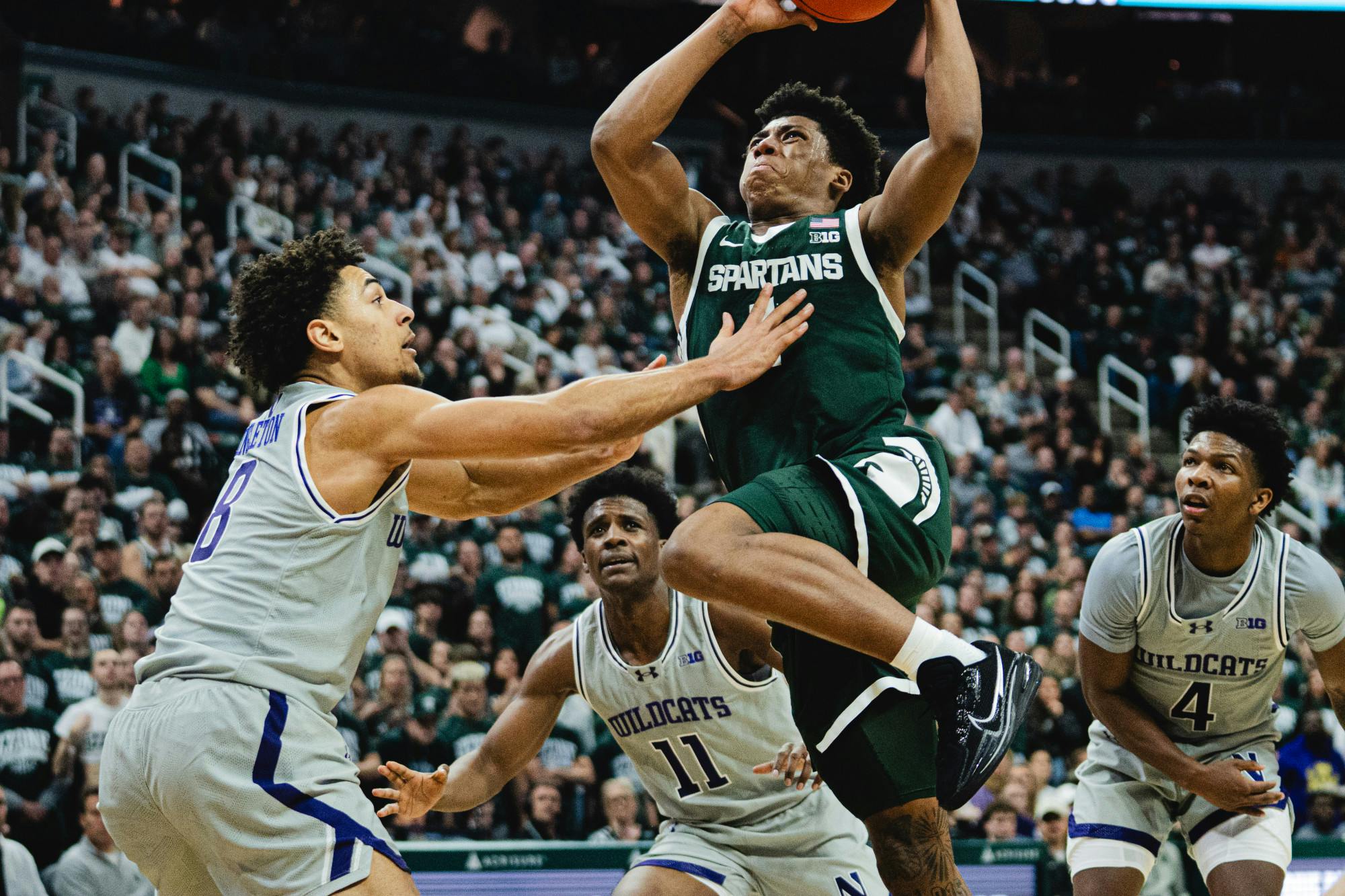| Content warning: This article contains descriptions of sexual violence. The National Sexual Assault Hotline can be reached at 800-656-HOPE (4673). |
For years, Michigan State University has insisted that its handling of sexual abuse claims has greatly improved since the Larry Nassar scandal.
The Department of Education seemingly isn’t so convinced.
The federal overseer, tasked with ensuring gender equity on college campuses, is investigating MSU for allegedly mishandling reports of sexual assault by a practitioner at its campus clinic and discriminating against one of the women who reported him.
The probe puts the university in an especially uncomfortable position — once again defending itself amid allegations of sexual misconduct by one of its healthcare providers.
Cases of sexual violence under the guise of medical treatment are difficult for any institution to navigate, experts told The State News. A power imbalance governs every interaction between providers and patients, and it can be extremely hard to decisively say where medicine ended and abuse began.
The issue is especially thorny for MSU, an institution that was widely lambasted for mishandling claims of sexual abuse by Nassar, its now-disgraced former doctor who assaulted hundreds of patients at his campus office.
Critics argued Nassar was allowed to continue his exploits because of failings in MSU’s processes, which either ignored accusations or cleared Nassar of wrongdoing.
In the years since, the university has attempted to convince skeptics that Nassar was an isolated issue that can’t happen again.
But the allegations being considered in the new federal investigation, and others uncovered by The State News, complicate that narrative.
The State News first reported the existence of the federal probe more than a year ago, using heavily redacted documents that only revealed that an investigation existed.
Now, the MSU graduate who filed the complaint has shared her story and hundreds of pages of documents with The State News, shedding light on the MSU investigation at the heart of the department’s inquiry. Her account is also supported by additional reporting and dozens of other documents obtained through public records requests.
Why share so much, especially as the federal government's investigation is still ongoing?
Because if she had known from the beginning what MSU’s investigation would be like, she may have never reported to the university at all.
"My goal with all this is so that people have more information about the process and can make a more informed decision," said the woman, who The State News is only identifying by her middle name, Elizabeth.
"Because, looking back now, I certainly didn’t have that going in."
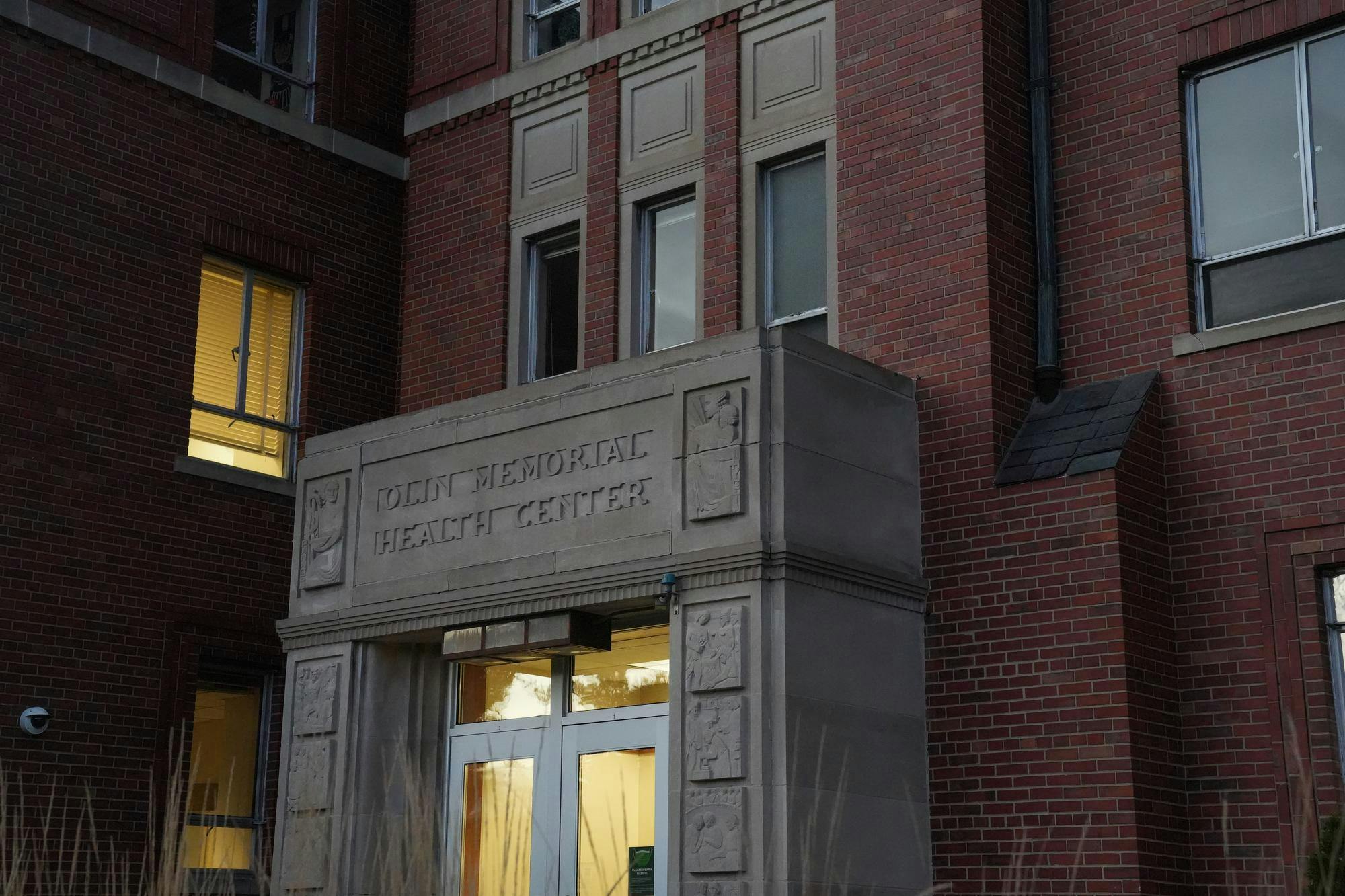
Making the allegation
Almost three years ago, when Elizabeth first reported to MSU, she saw things differently.
She had followed the news about past sexual violence issues at the university; she had heard MSU’s official line on its ever-improving Title IX system; and Elizabeth believed that her studies — which related to the sorts of issues and processes in Title IX cases — would prepare her for the process.
Support student media! Please consider donating to The State News and help fund the future of journalism.
So in February 2022, when Elizabeth was a student, she filed a report with MSU’s Office of Institutional Equity, which conducts Title IX investigations. She told them that she had been assaulted during an appointment days earlier at the university’s campus clinic, the Olin Health Center.
The first step was creating a formal complaint.
Elizabeth was interviewed by a university Title IX investigator. Then, that person turned the interview into a written, third-person narrative. She and the investigator then went back and forth on the language until Elizabeth felt comfortable signing the document.
Disagreements between Elizabeth and the investigator over what details to include were "the first real frustration" in the lengthy process, she said.
The State News reviewed a copy of the formal complaint.
It said that the way the practitioner touched Elizabeth “felt intentionally affectionate, not treatment-oriented,” leading her to question whether it was appropriate. It also described a moment of arousal she experienced, which further convinced her that something was amiss. And, it detailed how she struggled to get up off the table during the alleged assault.
It also detailed a series of comments made by the practitioner that left her feeling uncomfortable. At one point, as his arms were wrapped around Elizabeth, the practitioner said, "Hey look, you are getting your hugs for the weekend," the complaint said.
When she mistakenly thought a treatment was over and began to stand up, he told her, "You can get up when I say you can get up." Then, when the appointment was actually over, he said, "OK, do your exercises or else I will have to do that again."
Elizabeth’s other statements to investigators described the experience as “humiliating,” saying she had to work through a sense of shame surrounding the arousal, eventually coming to terms with the fact that it was “only a response to the physical sensation, not any signal of desire or acceptance.”
They also included details from the weeks after the appointment, saying she struggled to sleep and focus in school, suffered panic attacks and had a visceral flashback to the appointment.
Elizabeth signed her formal complaint in March, officially starting the investigation. The Title IX office’s next step was alerting the practitioner and soliciting his response.
In a written statement, he denied the allegations, writing that it "was a normal treatment session."
The practitioner said he did not recall details of the appointment, but that if what Elizabeth alleged did occur, it could all be explained away. He said that the maneuvers she described could have been part of legitimate medical treatment, and the comments could have been a manifestation of his effort to "have a casual and light-hearted treatment session."
He also wrote that, in his decades-long career, he "had never before … been accused of behaving inappropriately toward a patient."
That wasn’t true, as police reports show he was accused of assaulting another patient two years before, and had used the same defense.
The State News is not identifying the practitioner or his medical discipline because he has not been found responsible for misconduct in university investigations or charged with a crime. Reached by email, he told The State News that "this was a very traumatic time in my life and so (I) will not be adding further comments."
Reach the reporter at Alex.Walters@statenews.com or (248) 979-5497
MSU seeks an expert
After receiving the statements from both parties, MSU’s investigator chose to ask an expert in the practitioner’s medical discipline to write a report interpreting them.
The use of experts in an accused doctor’s field became a point of contention for MSU amid the widespread criticism of its handling of Nassar’s serial abuse.
The university infamously cleared Nassar of wrongdoing in a 2014 Title IX investigation relying on statements from experts in his field who said that everything Nassar did was part of legitimate medical treatment. Those experts, however, were colleagues of Nassar.
In Elizabeth’s case, MSU used an expert outside the university. The expert’s report endorsed the practitioner’s defense.
The expert’s report said the conduct described could all be part of normal medical treatment. It noted that the practitioner could have communicated more clearly so that Elizabeth would "accept the treatment from the (practitioner) without question."
The report also minimized the comments that made Elizabeth uncomfortable. The expert questioned her for reporting them to MSU because she "did not voice any concern to (the practitioner)" in the moment.
There is also dispute over the expert’s discussion of Elizabeth’s clothing being partially removed.
Elizabeth’s formal complaint said that the practitioner "stated it was easier if he could roll down her pants a bit." The complaint then moved on to describing the rest of the appointment, and doesn’t mention the pants again.
The practitioner also briefly addresses that in his statement, saying he did not remember her pants being lowered. He goes on to say that if her pants were rolled down, it would have been part of his treatment.
The expert, however, distorted this discussion, making an assertion that Elizabeth rolled down her own pants and thus consented to later actions she alleged.
The report said: "Since claimant rolled her own pants down, the respondent likely assumed that the claimant was giving permission" to perform one of the ensuing treatments that made Elizabeth uncomfortable.
Experts in Title IX cases like Elizabeth’s don’t have to follow the same rules of evidence that govern expert testimony in criminal proceedings, said Nicole Bedera, a sociologist who studied Title IX investigations for her Ph.D. dissertation at the University of Michigan.
If a case like this occurred in a courtroom, for example, an expert would only be able to speak to the actual medical questions, Bedera said. But in Title IX cases, experts sometimes make sweeping judgments about informed consent or sexual violence, despite lacking true expertise or experience in those concepts, said Bedera, who recently published a book about Title IX investigations.

Michigan State University's Student Services Building on. Nov. 11, 2024.
Dispute about medical records
MSU also sought to add Elizabeth’s unrelated medical records to the pool of evidence being used to evaluate the case, bringing further disputes.
When Elizabeth signed a HIPAA release allowing medical documents to be included in the case file, she thought it would only be the notes on the appointment in question, she said.
Instead, MSU added her entire medical file, including notes on conditions and treatments unrelated to the matter at hand.
That included unrelated medical information which Elizabeth believed could prejudice the investigator and eventual resolution officer against her.
Elizabeth protested, and MSU eventually redacted the unrelated information in the medical file.
It’s common for universities to attempt to "cloud" investigations with lengthy additions of non-essential evidence, said Bedera. In cases she studied for her book, Bedera notes that investigators muddied issues and created needless contention.
A grueling hearing
At the end of the evidence-gathering phase of the process, an MSU investigator was responsible for deciding how the case should move forward.
In Elizabeth’s case, the investigator concluded that, if true, what she alleged would fall under the university’s definitions of sexual harassment and non-consensual sexual contact.
But the investigator decided that Elizabeth’s "credibility is at issue," so further review was required.
The investigator recommended that a live hearing be conducted before an outside resolution officer was asked to make the final judgment.
Such hearings seek to replicate parts of criminal legal proceedings, with testimony of various witnesses and each party being cross-examined.
They are a core component of the first Trump administration’s controversial Title IX rules, which sought to increase protections for those accused. The rules, announced in 2020, added a requirement of live hearings and cross-examinations.
That mandate was commended by some, who view hearings as an important due process protection for the accused, but criticized by others who say live hearings retraumatize survivors and greatly delay even simple cases.
In new rules announced earlier this year, the Biden administration got rid of the live hearing requirement, allowing colleges to choose when and whether to use them.
MSU has not dropped its live hearing requirement because of legal challenges to Biden’s new rules brought by Republican state officials, said spokesperson Emily Guerrant.
It’s unclear if Trump will bring back the live hearing requirement during his second term. His transition team did not respond to a request for comment, and his official platform says only that he will "reverse Biden’s radical rewrite of Title IX" to "end left-wing gender insanity."
At Elizabeth’s live hearing, she was questioned for over three hours.
Throughout the questioning, Elizabeth’s adviser voiced concerns about the lengthy, aggressive questioning via Microsoft Teams Messages.
"This is not how we treat individuals in this process," Elizabeth’s adviser said in one of the messages, which were included in the case file. "[T]his is a concern going forward."
In the messages, she noted that the practitioner’s adviser was being "highly antagonistic," making "eye rolls after almost every question" and negative comments when Elizabeth opted not to answer certain probing questions.
Despite her adviser’s concerns, the hearing officer allowed the abrasive questioning to continue.
"I felt like I was in the room with two additional bullies," Elizabeth said of the hearing officer and practitioner’s adviser. "These lawyers come in and treat it like a court hearing."
When the hearing officer questioned her for 82 minutes, Elizabeth said she asked herself: "Is she just unprepared, or trying to get back at me?"
"I wondered if it was vindictive," she said.
The practitioner was also questioned at the hearing, though not for as long. During his portion, he repeated his defense: He did not recall details of the appointment but believes everything described was part of legitimate treatment.
The hearing also included testimony from another Olin employee who was working nearby during Elizabeth’s appointment. That person said they did not remember anything concerning, but was busy with other patients and thus "could not have seen or heard every interaction" between Elizabeth and the practitioner.
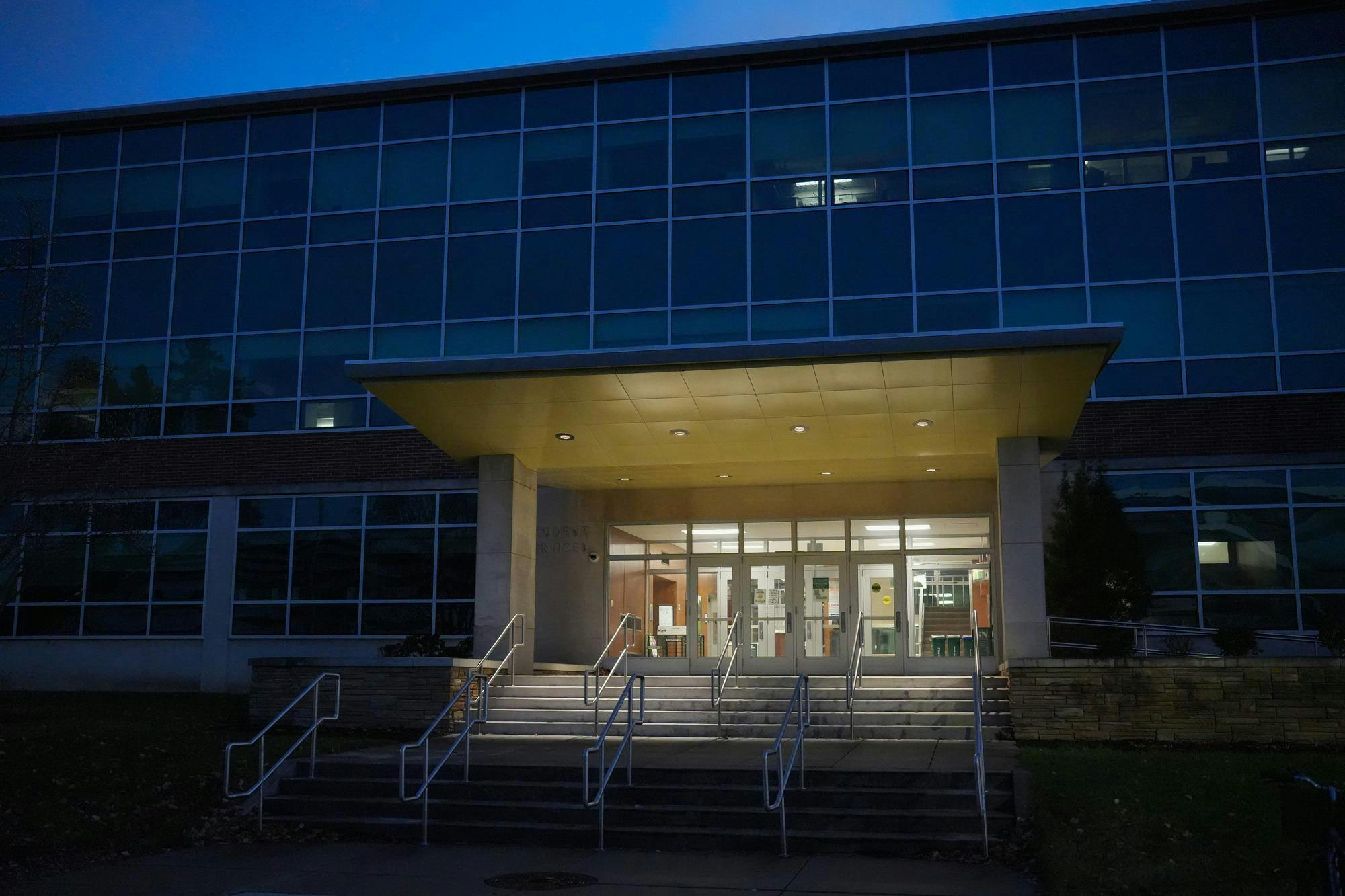
Michigan State University's Student Services Building on. Nov. 11, 2024.
MSU’s decision
After the hearing, a decision in Elizabeth’s case was made by a resolution officer, someone outside the university who reviews all the evidence, watches the hearing, and then decides if the accused is found responsible for the conduct. Elizabeth’s case was handled by Laura G. Anthony, a Columbus, Ohio attorney.
Anthony concluded there was not evidence to support a finding that the practitioner engaged in non-consensual touching, because Elizabeth was not credible, she said.
A "credibility determination" conducted by Anthony calls Elizabeth’s account "inconsistent," because she included certain details in her later statements to investigators and during the hearing that weren’t in her initial formal complaint.
That practice — assessing the credibility of a claimant by comparing their various statements to investigators, made months apart — is a subject of controversy. Experts in trauma psychology have argued that such judgments are unscientific and ignore what’s understood about the different ways traumatic memories are stored and retrieved.
The credibility determination also took issue with some of the material of Elizabeth’s retelling itself. Take, for example, Elizabeth’s claim that she moaned and struggled to get off the table. Anthony writes that it would be impossible for that to have happened without someone else noticing, despite the one witness saying they were with another patient and not paying attention.
The practitioner, conversely, is credible, according to Anthony. She said he was "consistent internally and externally," with his repetition that he didn’t remember the appointment and wouldn’t do what was alleged.
The decision also disputes Elizabeth’s allegation that the practitioner engaged in sexual harassment with the comments that made her uncomfortable. Anthony writes that it is possible Elizabeth found the comments "subjectively offensive," but "an objective person would not be offended by these comments."
Elizabeth appeals
Elizabeth appealed Anthony’s decision to a second resolution officer, a step allowed by MSU’s Title IX policy and offered to claimants and respondents.
In her appeal, she questioned the credibility assessment.
The practitioner said in the hearing that he "saw 7-10 patients a day and did not have a direct recollection of the specific instances." How then, Elizabeth argued, could his account be credible?
She also pointed out that the witness — who supposedly supported the practitioner's account — stressed in the hearing that they did not have a direct recollection.
The appeal also takes issue with the hours-long, aggressive questioning at the hearing. The ordeal was "not trauma-informed to such a degree that was prejudicial against the Claimant for testifying."
Elizabeth’s appeal was reviewed by Aislinn Sapp, an MSU employee tasked with making those final decisions. She denied it.
Sapp’s December 2022 decision acknowledges many of Elizabeth’s concerns, but suggests they are broader issues than can be addressed in an individual appeal.
A case can be overturned on appeal if there was a misapplication of MSU’s policies; Elizabeth’s appeal, however, was criticizing the policies themselves, Sapp argued.
With the hearing, for example, Sapp writes that she "agrees that the total length of time spent questioning (Elizabeth) is of concern," but doesn’t see a misapplication of policy or anything that would have changed the decision.
"There is nothing in the policy or the hearing procedures that expressly requires a hearing to be trauma-informed," Sapp wrote.
The admission undercuts MSU’s recent attempts to convince critics that its investigations are conducted in ways that won’t further hurt or retraumatize survivors. The training used by Title IX staff describes investigations as "trauma-informed," and the office’s most recent annual report says that it "strives to conduct (investigations) in a trauma-informed manner."
Guerrant, the MSU spokesperson, said that Sapp was making a "factual statement" about the hearing policy, which did not capture the university’s overall "philosophy and approach."
"Recognizing the trauma of those impacted by these situations and promoting an environment of healing can still exist without a formal policy," she said in an emailed statement.
Reach the reporter at Alex.Walters@statenews.com or (248) 979-5497
Sapp’s decision similarly rejects the appeal’s issues with the credibility assessment. Elizabeth may have objections with the reasoning in the decision, but MSU’s policies give resolution officers "broad discretion" to determine what evidence is relevant and what weight it’s given, Sapp argues.
With that, MSU’s decision was set: The practitioner was not found responsible for either the sexual harassment or non-consensual sexual touching.
The case was then referred to MSU’s Board of Trustees for certification, a formal attestation that university leaders are aware of reported sexual misconduct by employees. The process is required by state laws created in reaction to the Nassar case. In March 2023, then-trustee, now-chair Dan Kelly certified Elizabeth’s case, according to emails obtained through public records requests.
'I was being treated as a tool'
For Elizabeth, the depth of the failings of the Title IX process wasn't entirely clear until she reported the same incident to MSU’s police department and had a vastly more positive experience.
Historically, survivors of sexual violence have feared reporting to police. Law enforcement agencies often mishandle cases or retraumatize survivors. Title IX investigations are sometimes advertised as less stressful and more accommodating of survivors.
The two systems also operate under different burdens of proof. In the criminal system, offenses must be proven "beyond a reasonable doubt." In Title IX, offenses only need to be proven to have "more likely than not" occurred.
But Elizabeth’s experience didn’t square with that conventional knowledge. Though the end result was the same, she said reporting to law enforcement was far less stressful than MSU’s Title IX process.
With the police, all she had to do was report what happened. Then, a trained detective did the investigating.
With MSU’s process, Elizabeth had to not only report what happened, but craft the formal statements describing it, collect the relevant evidence and argue her case. She had an adviser, but she knew it would all stop if she didn’t persist. It felt like the onus was all on her to solve the issue, she said.
Certain people in MSU’s process seemed interested in creating accountability for perpetrators, like a caring adviser or dedicated support person, she said. But, Elizabeth said it felt like it was on her to actually do that.
Sometimes, she thought about it as an issue of "cost and benefit," she said. Universities may want to remove employees who victimize others, but survivors are bearing the cost. They are retraumatized and burdened by a grueling process to make that happen, Elizabeth said.
"They need you in order to get these people out," she said. "Sometimes I felt like I was being treated as a tool."
If she could do it all again, Elizabeth said she would have first reported to police and may have skipped MSU’s Title IX process.
She’s not alone, said Bedera, the sociologist who studies campus sexual violence.
"Title IX investigation" is largely a misnomer, Bedera said, because it’s the involved parties who collect the evidence and build the cases — not the university.
The "investigator" is actually more of an "evidence receiver and organizer," she said.
"They really put it all on the claimant," Bedera said. "Schools say, 'Bring it to me the right way, and put it directly in front of me.' You have to do all the work, and if you don’t don’t it correctly, they’ll pretend nothing happened."
Some have caught on to this and began utilizing the differing systems to their advantage.
In a case Bedera studied for a book, a survivor chose to first report to police and allow a detective to conduct an investigation. Then, she reported to the university using the evidence collected by police, easing the burden on her in the Title IX process.
In a purely pragmatic sense, Bedera said it may be a keen way to get some of the benefits of both systems. But, she said it demonstrates how broken universities’ methods may be.
"(That survivor) said that the university process seemed worse than being interrogated by a white male police officer," Bedera said. "And to her, that’s a real indictment."
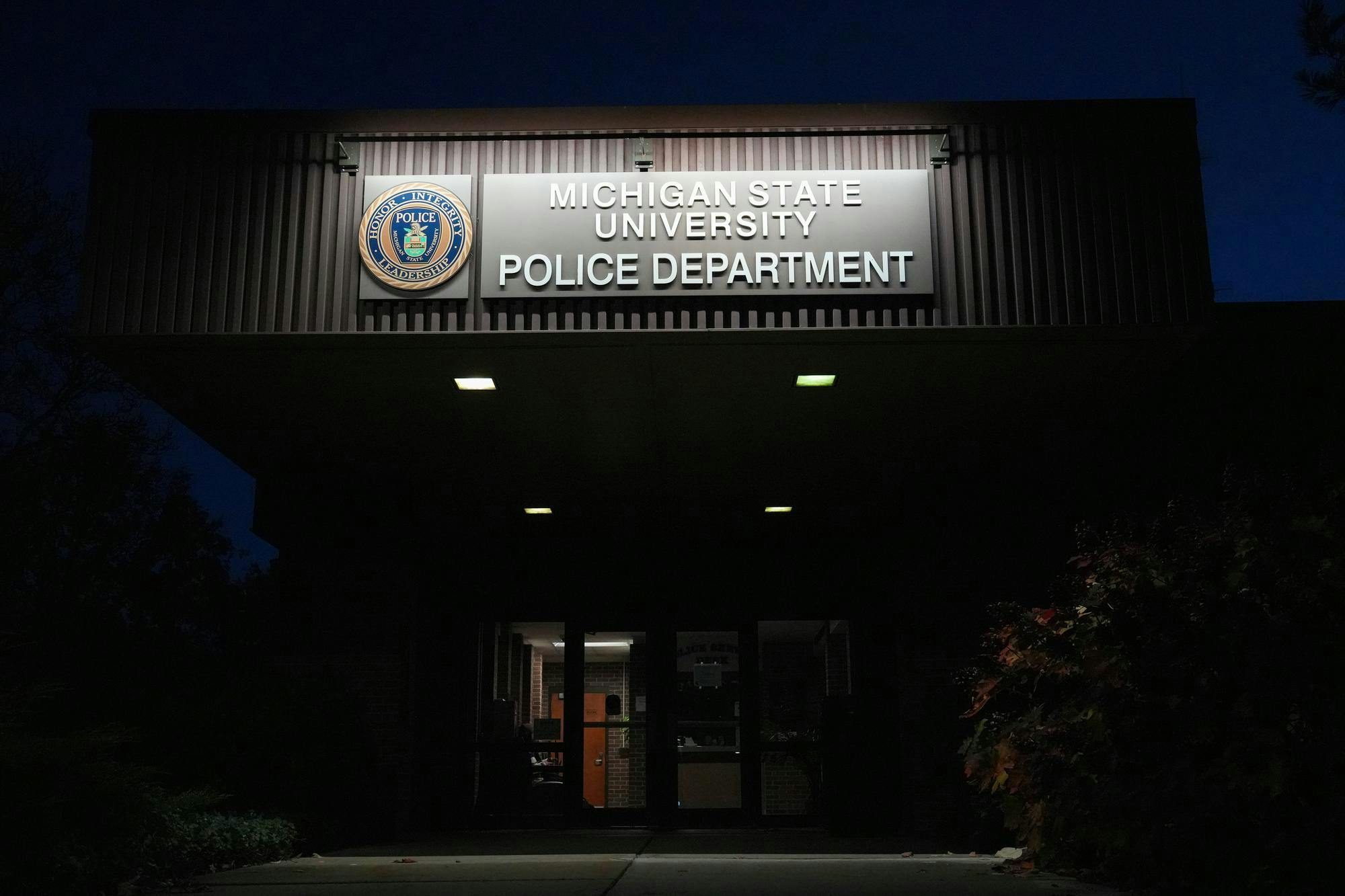
Michigan State University Police Department on Nov. 11, 2024.
Previous allegations from another patient
It appears that the posture Bedera describes played out in other allegations against the same practitioner.
Two years before Elizabeth’s incident, another patient made similar accusations, but chose to only cooperate with a police investigation, declining invitations from the university to participate in the Title IX process.
A police report shows that in January of 2020, an MSU student told officers that she believed she was sexually assaulted by the practitioner during an appointment at Olin.
The student told police she began to question the treatment as she noticed that the practitioner would vary the forcefulness and nature of his touch depending on if others were in the room, according to a copy of the police report obtained through a public records request.
"I know how it is," the victim told police. "He’ll try and touch me in certain ways, and look at me provocatively when we’re alone, but the moment an adult comes … he’ll act professional."
She began to feel relief each time someone walked by, and then dread as she realized, "Oh my God, this is happening again," when the other person left, according to the police report.
The police interviewed the practitioner — who denied the characterization — and then hired an outside expert to evaluate the allegations.
The expert’s eventual report concluded that the practitioner’s actions could be part of legitimate medical treatment, but that something was amiss if a patient was left feeling like the practitioner was getting sexual gratification from it. He theorized that the cause was a "miscommunication failure," according to a copy of his report included in the police file.
The police sought input from the same expert years later in Elizabeth’s case. In that matter, he expressed deeper doubts.
What happened could have been another communication failure, the expert wrote of Elizabeth’s case. But, he concluded that he could not "rule out possible inappropriate behavior or actions" because of Elizabeth's description of arousal.
"The sensual response by the patient is not fully explained to this consultant’s satisfaction," he wrote in his report, which The State News obtained through a public records request.
The police expert also differs from MSU’s in his discussion of Elizabeth’s clothing.
MSU’s expert asserted that Elizabeth consented to parts of the treatment because of the seemingly unsupported assertion that she lowered her pants when asked. The police’s expert, conversely, says that there wasn’t a medical reason to lower her pants at all, according to his review of the statements and the medical record of the appointment.
Both the 2020 police investigation and Elizabeth’s case were forwarded to the Ingham County prosecutor for charges. The requests were ultimately "denied because there was insufficient evidence to pursue criminal charges," prosecutor John Dewane said in an email to The State News.
The 2020 case never went through the Title IX process. The university opened an investigation when the patient made a report to police, but closed it because the accuser did not want to participate, according to documents obtained through public records requests. It’s possible for MSU to carry out a Title IX investigation without an accuser’s participation, but it’s rare and can be difficult.
Though the university didn’t carry out a Title IX investigation, the report did eventually trigger information-sharing within MSU’s administration thanks to a new state law.
The law passed in the wake of the Nassar scandal requires a university’s Title IX staff to notify leaders when an employee is accused of sexual misconduct more than once.
So, MSU’s Board of Trustees and its then-president, Samuel Stanley, were made aware of the cases against the practitioner in May 2022, according to emails obtained through public records requests.
It’s unclear if that information was discussed by the board and Stanley at the time. Guerrant, the spokesperson, said she is "not aware if there was any discussion."
During the Title IX process, Elizabeth wasn’t told that the board and president were alerted about her case, she said, or that a trustee would certify the final decision. She only found out when The State News asked her about it.
Elizabeth said it made her think about a series of victim-blaming texts exchanged by former trustee Pat O’Keefe and current trustee Rema Vassar which were published in news reports last year.
"I’m cringing, thinking about the text messages," she said. "What did they say about me? I don’t even want to know."
Feds examine MSU
In September of 2022, as Elizabeth awaited a hearing and decision in her Title IX case, she felt "the weight of the world on (her) shoulders." So, she filed a complaint with the federal Department of Education, hoping it would look into MSU’s handling of her case.
Soon after MSU’s decision, the university received a letter from the department’s Office for Civil Rights. It said the department planned to investigate MSU for possibly mishandling the allegations against the practitioner, and potentially engaging in disability discrimination with the errant inclusion of Elizabeth’s unrelated medical records.
The letter said the department was also investigating further allegations that Elizabeth’s education at MSU was hindered in retaliation for her reporting of the practitioner. Elizabeth declined to speak in detail about that issue because it was within her degree program and could reveal her identity.
The federal investigation represents an eventful turn in Elizabeth’s case, but isn’t altogether unusual.
Universities like MSU are empowered to investigate and discipline issues of sexual violence under Title IX. The federal department’s investigations act as a sort of check to that power, evaluating the ways that colleges conduct investigations when parties voice concerns.
In the last decade, MSU has entered into two major resolution agreements with the department. Those deals are one way the department’s investigations can end, with universities agreeing to lists of required reforms.
In 2015, the university agreed to expand its Title IX office and improve efficiency after the department found that MSU failed to inform students of their rights under the statute and moved egregiously slow when investigating cases.
In 2019, MSU agreed to pay a $4.5 million fine and create new information sharing policies after a department investigation found that the university repeatedly ignored reports of Nassar’s abuse and failed to properly investigate the ones it considered. MSU is still working to adopt those recommendations and, earlier this year, the university paid another nearly $3 million fine for failing to follow through on some of them.
Other department investigations into MSU have ended with more straightforward findings against the university or with a dismissal of the complaint altogether, said Guerrant, the MSU spokesperson.
Elizabeth’s case is one of seven complaints about MSU’s handling of Title IX that the department is currently investigating. Guerrant said the university "continue(s) to comply and cooperate with each of them."
Such investigations are often quite broad. The department doesn’t necessarily investigate, for example, individual accusations that someone committed sexual misconduct. Rather, they tend to look at how an institution's investigative practices or systemic issues allowed abuse to occur.
Their inquiries may start with a single case, but attempt to find patterns and practices that violate various civil rights rules. The Office for Civil Rights’ most recent annual report describes various ways that an investigation into one case can widen to examine broader institutional problems.
"Where there is a problem with one student, that may be an indicator that there is a problem with the way that the (institution) handled these kinds of" issues in general, said one attorney quoted in the report.
A troubling trend
That broad lens puts MSU in an especially uncomfortable position with Elizabeth’s case — forced to once again defend itself amid allegations of sexual misconduct by a university healthcare provider.
Those cases are difficult for any institution.
A deep power imbalance makes the medical field ripe for abuse. Patients sometimes go along with things that make them uncomfortable "because there is a sense of power and authority from someone in a medical setting," said Sheridan Miyamoto, a professor at Penn State University who researches sexual violence in healthcare.
"They don’t always know where the line is blurred, only that something doesn’t feel right," she said.
Investigating those cases then presents challenges that aren’t there in other sexual violence cases. Much of medicine is inherently intimate, said J. Wesley Boyd, director of education at Harvard Medical School’s Center for Bioethics. Even the best investigative processes can struggle to determine where medicine ends and abuse begins.
"There’s no other setting where a stranger is going to ask you to disrobe and be able to put their hands on you, and it’s considered absolutely appropriate," Boyd said. "Much of what happens in medical settings would be completely inappropriate outside of them."
"If you have predatory doctors, they exploit that," said Boyd, who has treated abusive doctors as a psychiatrist and acted as an expert witness in medical malpractice lawsuits.
MSU has tried to say Nassar was one example of that troubling trend, an outlier that can’t happen again. But Nassar is by no means the only MSU healthcare provider accused of sexual misconduct in recent years. In fact, there are at least five reported cases.
There is the practitioner in Elizabeth’s case; a university physical therapist was accused of sexually assaulting a patient in a 2023 lawsuit; and, an MSU medical resident was convicted of sexually assaulting patients in 2019.
The State News also found allegations of sexual assault by two other current MSU doctors. One was accused of groping two separate patients in 2017 and 2018, according to police reports and emails obtained through public records requests. The other was accused of assaulting a patient while working at a local hospital in a 2017 civil lawsuit.
It’s unclear what is being examined in the department’s current investigation of MSU. The State News obtained its case file through a public records request, but the department completely redacted the vast majority of the pages. The few pages that were unredacted or partially redacted were mostly cover pages and lengthy email signatures, lacking any significant information.
The department does not comment on open investigations, a spokesperson told The State News.
"Several factors impact how long it may take to resolve a complaint that is opened for investigation, including resource constraints as well as, for example, school responsiveness to document requests, witness availability, and volume of documents to review," the spokesperson said in a written statement.
The recent Office for Civil Rights report suggests that the department’s investigators are woefully overwhelmed, with a skyrocketing number of cases and stagnate staffing.
It’s also unclear how the office or its current investigations will be affected by Trump’s plan to "close the Department of Education." Project 2025, a controversial political playbook written by former Trump administration officials, suggests preserving the office, but making it part of the Department of Justice.
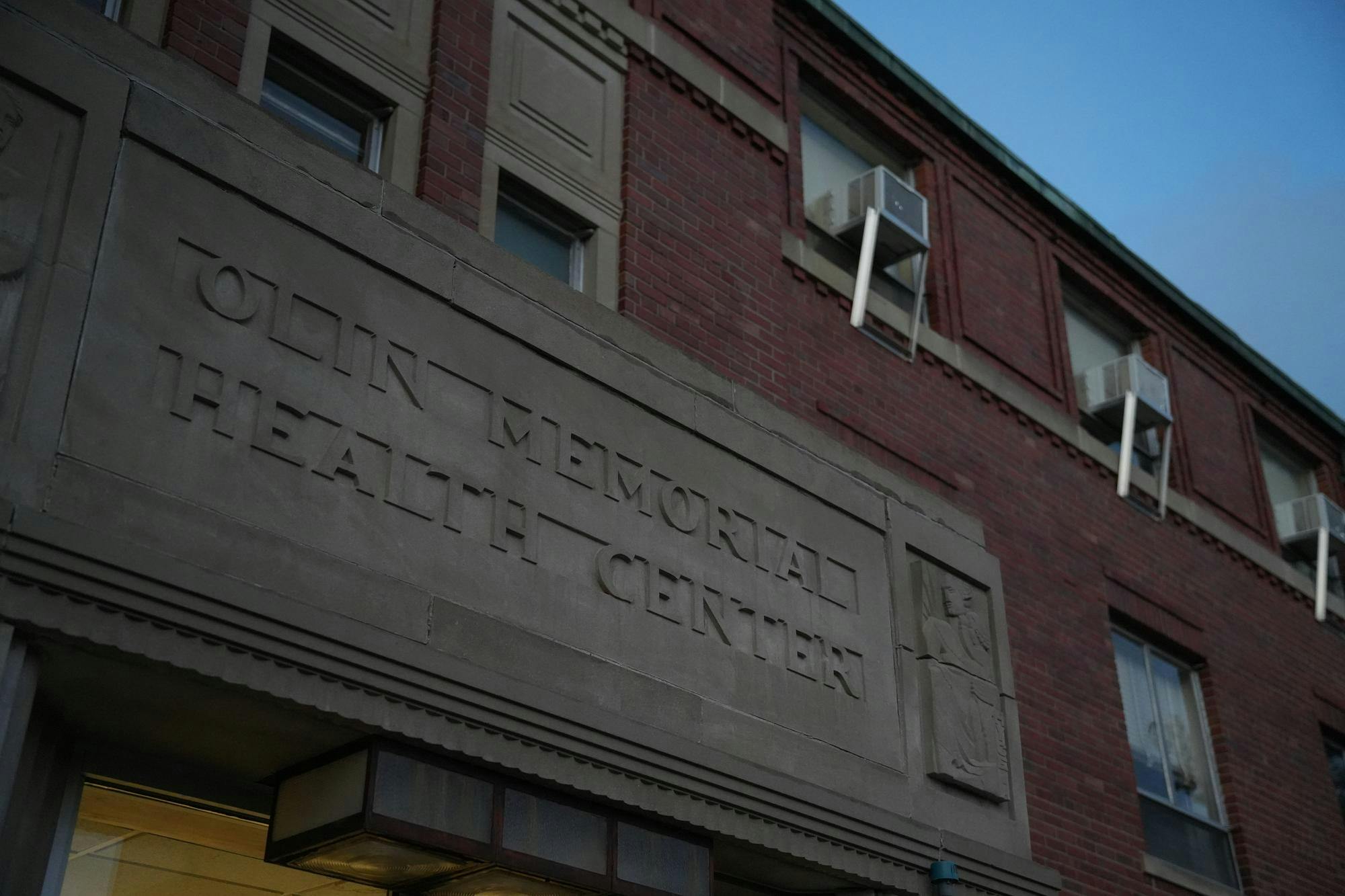
Olin Memorial Health Center on Nov. 11, 2024.
Elizabeth wants change
Whatever the outcome, Elizabeth said she hopes MSU will reflect on her experience and further reform its processes. With or without prompting from the department, she said the university has work to do before "no one has to be afraid to see a doctor on that campus."
MSU largely declined to comment on Elizabeth’s assertions. Guerrant, the spokesperson, did partially answer a list of written questions from The State News in an emailed statement.
Broadly, she said that "our goal in all investigations and situations is to treat everyone involved with respect and care."
In the years since the February 2022 appointment, Elizabeth said she’s "had to do a lot to deal with the effects of what he did." By telling her story publicly and making her demands known, Elizabeth hopes MSU will be forced to do the same.
"I had to get better," she said. "Now, it’s the university’s choice whether they want to do the same thing for themselves."
One step would be funding academic research of the unique issue of sexual misconduct amidst medicine, Elizabeth suggested. There is a growing body of studies examining the problem. Making more of them possible would "show that the university is taking some ownership," she said.
In recent years, MSU has made major investments in scholarship of "health equity," with the new Charles Stewart Mott Department of Public Health in Flint and the recent inaugural MSU Health Equity Symposium. Those both focused on health equity along racial and geographic lines, but Elizabeth suggested that future work focused on eliminating sexual violence in healthcare could be a part of the broader mission.
Another suggestion: MSU should simply be more upfront about what Title IX investigations entail, Elizabeth said.
Even if the eventual outcome was the same, Elizabeth said her experience could have been improved if she knew from the start about the long wait times, burdensome evidence gathering, grueling hearing process and multiple times she would be made to rehash each traumatic detail of her allegations.
"Nothing can prepare you for this," she said.
MSU advertises its Title IX office as much improved since the days of Nassar. It calls the office "trauma informed." But, as the university equity review officer wrote in the decision in Elizabeth’s case, the policies themselves don’t always require that.
Elizabeth said she hopes that her choice to publicly detail her interactions with the university will help others make more informed choices about reporting.
"I’m not looking to be like the standard bearer of this issue," Elizabeth said. "I don’t want to hold this mantle ever again."
Reach the reporter at Alex.Walters@statenews.com or (248) 979-5497
